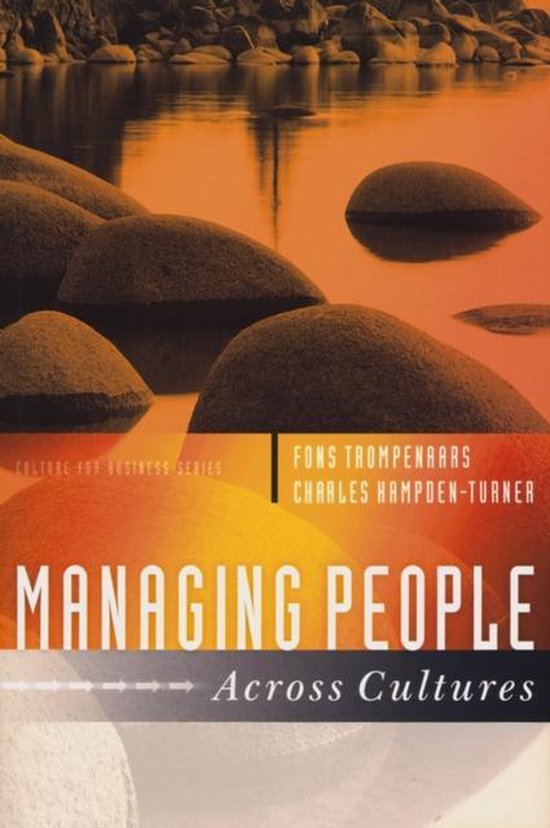
Managing People Across Cultures
Processes such as job evaluations and reward systems are significantly affected by the cultural environment. Managing People Across Cultures shows what human resource executives can do to reconcile these cultural dilemmas and provides a highly accessible guide to important business issues.
Managing People Across Cultures maps out the value of people issue in the organizations of today. It challenges us to ask key questions such as 'How did Human Resource Management (HRM) come to be and what genuine need is there for it?' and 'What should the future direction of HRM be?' Fons Trompenaars and Charles Hampden-Turner spell out their vision for what HRM must do to stay relevant to businesses today. Their view is that people management must embrace the values of entrepreneurship, i.e. agility, flexibility and innovation, to ensure its continued effectiveness. The authors also argue that workplaces have to become customized to grow and learn as its employees push the boundaries of learning and discovery. Functional barriers also need to be torn dowm. You will discover that the rightful place for HRMs is at the fountainhead of any business; the place where ideas are first generated and mobilized for action.
Managing People Across Cultures maps out the value of people issues in the organizations of today. It challenges us to ask key questions such as ?How did Human Resource Management (HRM) come to be and what genuine need is there for it?? and ?What should the future direction of HRM be?? Fons Trompenaars and Charles Hampden-Turner spell out their vision for what HRM must do to stay relevant to businesses today. Their view is that people management must embrace the values of entrepreneurship i.e. agility, flexibility and innovation to ensure its continued effectiveness. The authors also argue that workplaces have to become customized to grow and learn as its employees push the boundaries of learning and discovery. Functional barriers also need to be torn down. You will discover that the rightful place for HRM is at the fountainhead of any business; the place where ideas are first generated and mobilized for action.
Managing People Across Cultures maps out the value of people issue in the organizations of today. It challenges us to ask key questions such as 'How did Human Resource Management (HRM) come to be and what genuine need is there for it?' and 'What should the future direction of HRM be?' Fons Trompenaars and Charles Hampden-Turner spell out their vision for what HRM must do to stay relevant to businesses today. Their view is that people management must embrace the values of entrepreneurship, i.e. agility, flexibility and innovation, to ensure its continued effectiveness. The authors also argue that workplaces have to become customized to grow and learn as its employees push the boundaries of learning and discovery. Functional barriers also need to be torn dowm. You will discover that the rightful place for HRMs is at the fountainhead of any business; the place where ideas are first generated and mobilized for action.
Managing People Across Cultures maps out the value of people issues in the organizations of today. It challenges us to ask key questions such as ?How did Human Resource Management (HRM) come to be and what genuine need is there for it?? and ?What should the future direction of HRM be?? Fons Trompenaars and Charles Hampden-Turner spell out their vision for what HRM must do to stay relevant to businesses today. Their view is that people management must embrace the values of entrepreneurship i.e. agility, flexibility and innovation to ensure its continued effectiveness. The authors also argue that workplaces have to become customized to grow and learn as its employees push the boundaries of learning and discovery. Functional barriers also need to be torn down. You will discover that the rightful place for HRM is at the fountainhead of any business; the place where ideas are first generated and mobilized for action.
| Auteur | | Fons Trompenaars |
| Taal | | Engels |
| Type | | Paperback |
| Categorie | | Mens & Maatschappij |
